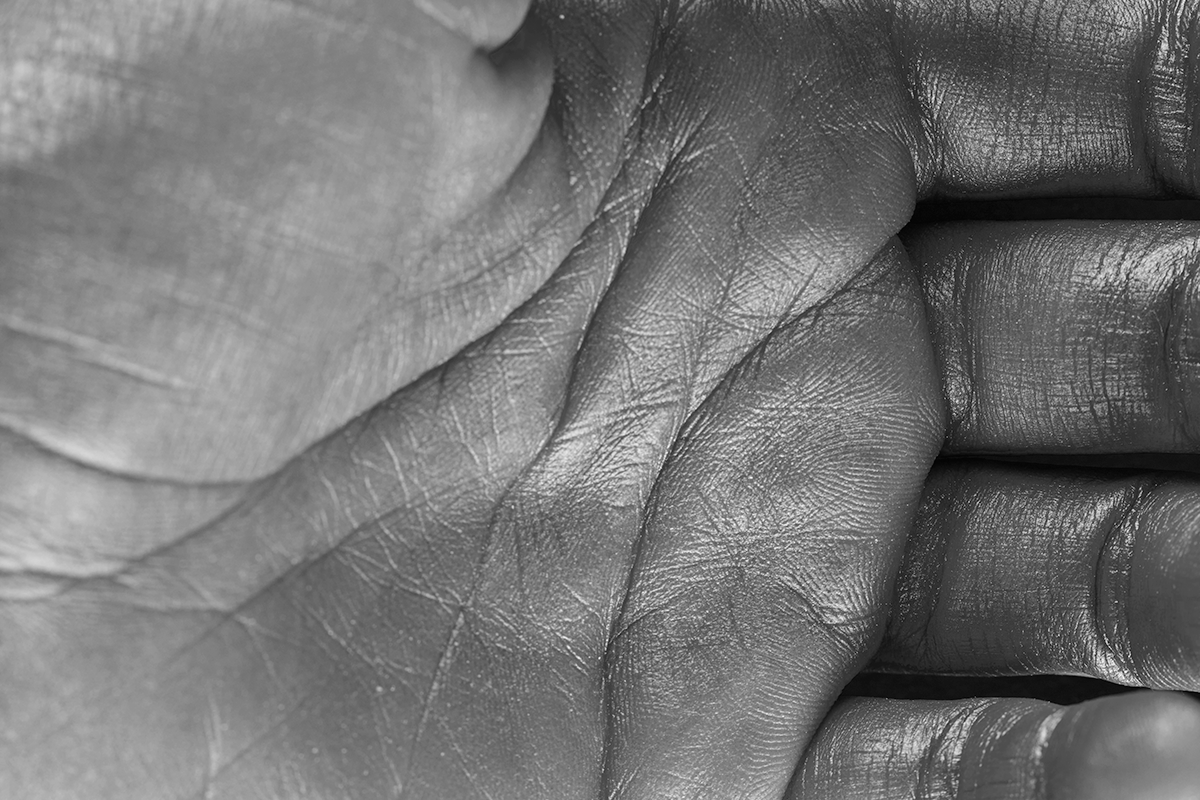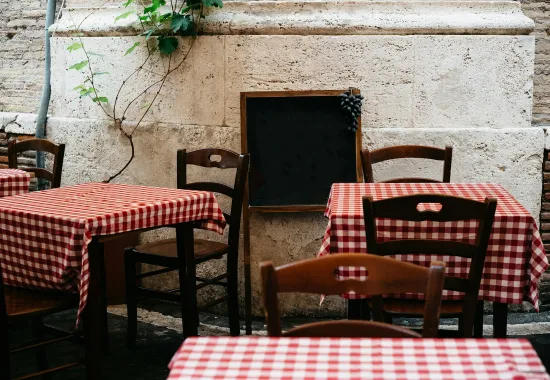Herring
Her daughter’s suitor was coming at six. Agnia had been cooking all day, careful to make the most of what little she’d saved over the past two weeks. It had to be herring, which she spent an hour dismembering, elbow deep in fish gut, meticulously extracting the endless fine bones.
She and her daughter had planned the dinner for a Friday night, when the factory girls came home late. It was movie night at the factory that kept them out, until they would eventually barge in drunk, slamming doors and swearing, making Agnia pull the pillow over her head. Her family had been lucky to keep two rooms at the tail end of the enfilade in their apartment, with their bedroom now where Kirill Andreyevich’s office used to be. They even salvaged his favorite oak writing desk, which had been passed down from his father. It stood crammed into a corner now, its intricately carved, sloping side facing the wall sullenly like a punished child.
They’d lost the shop, of course. Kirill Andreyevich’s life’s work, where he would arrive in the mornings, surveying the shelves like troops before a parade, sliding his white glove over them to check for hints of dust. They managed to keep some of the stock—wool, linen, batiste and even some jacquard. The wool kept them fed and was traded for butter, and on rare occasions, meat. While others turned to drapes and throws in search of fabric, or altered their men’s old uniforms, Agnia had something to dress her girls in during those first chaotic, hungry years after the Revolution.
Her youngest daughter, Lydia, had married in 1916, just before it all fell apart. Agnia thought her too young at eighteen, too soft and dreamy, a rag doll yearning for a dollhouse. Kirill Andreyevich approved of the match: a parishioner from a good family. When Lydia got pregnant that next frightening year, she and her husband moved to his family’s summer house outside of the city, away from the street fighting and most of the looting. Her in-laws were a great help in the years that followed, with the empty shelves and constant hunger reverberating through their stomachs. Lydia sent eggs and milk, jam and preserves, saving many a long, cold evening.
Agnia had been hungry for four years now. Her mouth was dry, her head light. Her step had become strangely weightless, as if her body stopped trusting the ground.
Her sons were nearly done with school when the abdication came. The eldest was set on engineering, the youngest hoped to be a doctor. In the four years since, the younger had rushed through combat medic training and joined the Red Army. The elder refused to speak to him because of this. Kirill Andreyevich said little, but Agnia saw how he slammed the drawers of his precious desk, and she knew.
Perhaps that son saved them. Families like theirs were called “former people” now—shop owners, well-to-do peasants, the merchant guild. The higher classes were beyond redemption. But a son in the Red Army gave them a buffer. Maybe that’s why they were allowed two sunlit rooms in the maze of their old apartment.
Theirs was a three-story, 18th century building with arched windows and low, wide sills. Her children had spent their childhoods stretched out on them with books or watching passersby on the thin strip of pavement by the river below. Now the sills were stacked with what remained of their life.
The face in the cloudy mirror was a cruel caricature of herself. The permanent stain of those dark circles under her eyes, the heaviness of her brows, the streaks of gray at the temples.
Agnia took out the good plates and frowned. One was chipped. She spun it this way and that, and placed it where she planned to sit. She had scrubbed her hands raw, yet the smell of herring clung to her fingers when she absentmindedly brought them to her mouth. Their help was long gone, and the endless housework took a toll on Agnia. Her long fingers were coarse now, nails battered, veins visible beneath thinning skin. She was forty-five, and whatever was left of her beauty was methodically grated away by bleak everyday labor and dread.
Kirill Andreyevich had found an accounting job after much groveling. The young men at work mocked his waistcoats and round spectacles. He was due home at the same time as the suitor.
Vera, her eldest child, was twenty-four. A late bloomer, though not for a lack of admirers. Vera was different. No docility, none of Lydia’s puffy warmth. Vera had stature that even the drabbest coats couldn’t hide. Too tall, too thin, chin held too high. Soldiers stared at her in the streets. It terrified Agnia. They saw her as a challenge. She was too much of a “former person.” Agnia felt a burning wave of panic rising inside her even thinking about it.
Vera worked as a ticket girl at the Chekhov Theater. Agnia was relieved that she had finally found someone. He could protect her, shield her from the eyes in the street. He was an architecture graduate from the university the youth admired, where all the modern poets and painters gathered. Vera had met him through a coworker’s brother. She was always drawn to the arts. In her tender teens, she’d sat enraptured in the Bolshoi box her wealthy uncle and his titled wife held, consumed by arias she knew by heart.
Agnia had scrubbed floors and windows, hidden what she could, laid out the good tablecloth and arranged fresh lilacs. The hallway was redrawn territory now, cut by partitions, undergarments hanging on a string between chairs. It made her wince. The suitor would have to pass all that.
Agnia kept her provisions in their two rooms because anything left in the communal kitchen was quickly taken. Having it to herself during the day was a rare privilege, one she feared would soon be gone. She imagined the second room being seized, she and Kirill Andreyevich exiled to the farthest corner. This was no way for Vera to live. Agnia had to get her out.
Agnia finished the mashed potatoes, wrapped them in a towel and nestled them in bed to keep warm. She sniffed her hands—still herring—and rushed to wash them again. The face in the cloudy mirror was a cruel caricature of herself. The permanent stain of those dark circles under her eyes, the heaviness of her brows, the streaks of gray at the temples. She turned away and smoothed her dress.
Any minute now.
The doorbell rang. Agnia inhaled sharply. She hurried to the door, moved the chains, unlocked the bolts.
There they were, Vera and the suitor. He stood tall in the doorway, lanky with sun-bleached hair and big eyes set in an angular face. Well dressed, Agnia noted. His clothes were old but clean, the suit jacket ironed, sharp lapels echoing his cheekbones. His shoes were worn but polished. Agnia looked at Vera beside him, radiant with pride, and her heart leapt.
“Agnia Ivanovna,” the young man said, reaching for her hand.
She extended it and, in slow motion, watched him lean forward and begin to bow. Horror flared inside her. The well-raised young man was about to kiss her hand. Her hand, which reeked of herring.
The fire in her chest blazed upward, to her solar plexus. The room tilted.
“Herring,” she thought, as she sank to the ground. “The shame.”
Recommended
The Old Man in the Café
White Christmas
A Dying Cow Giving Birth






